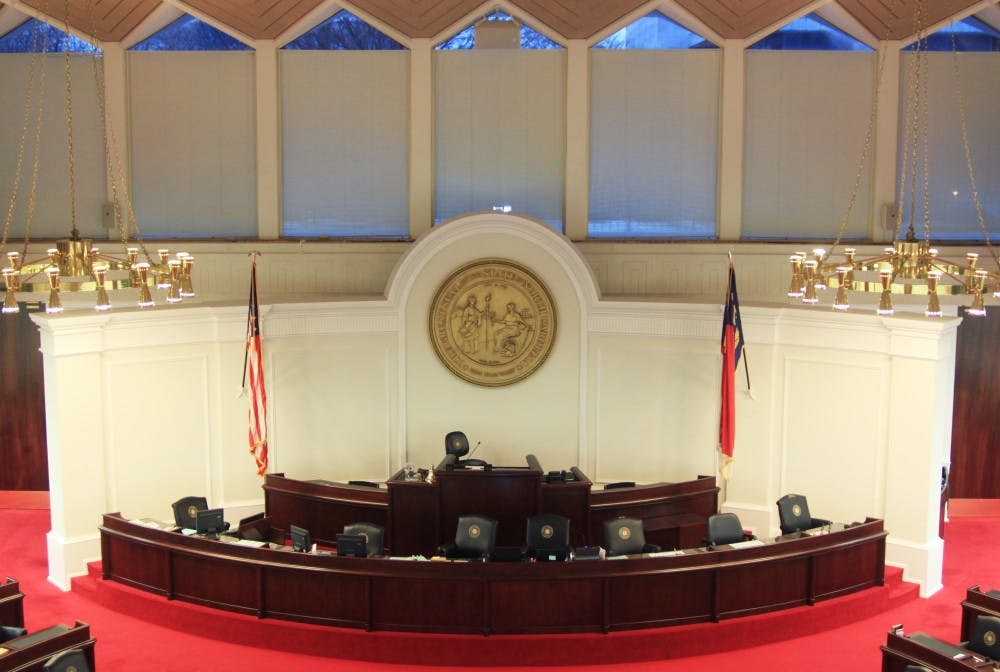Of these voters, 34 percent are between the ages of 41 and 65 and about 30 percent are black.
Critics of a voter ID law claim these demographics would be disenfranchised by a law requiring a photo ID at the poll.
The findings might clash with federal provisions that protect voting rights based on race and other minority groups.
“It is important that whatever bill comes forward meets with the requirements that have been set out with complying with the (U.S.) Constitution,” Berger said.
Tax reform
Unlike voter ID, there might be more separation between McCrory and Republican legislators on tax reform.
The Civitas Institute, a conservative N.C.-based think tank, released a study calling for the elimination of state personal and corporate income taxes, and a higher and more widely applied sales tax.
Sen. Bob Rucho, R-Mecklenburg, and other legislators have already advocated for a tax reform proposal. They plan to introduce it this session, said Brian Balfour, director of policy and operations for the Civitas Institute.
“In order to grow an economy we need business investment, and right now the biggest obstacle to that is income taxes” Balfour said.
But Democrats like Sen. Floyd McKissick, D-Durham, called the plan regressive and said it could result in less state money.
“We’d probably be looking at taxing virtually everything that we know and touch — each and every day — to make up for the lost revenue,” McKissick said.
Art Pope, McCrory’s deputy budget director, was also hesitant about the plan and its effect on low-income residents in a recent journalists’ roundtable at UNC-CH.
To get the day's news and headlines in your inbox each morning, sign up for our email newsletters.
“To switch to a pure sales tax on all services, that almost becomes a gross income tax,” he said.
“I think that would hurt the economy.”
Cedric Johnson, policy analyst at the left-leaning N.C. Justice Center, said the reforms would be an unstable source of revenue and could directly affect students.
“Students are likely to see the direct impact in the form of higher tuition and possibly fees,” he said.
Education reform
The session will also have major implications for UNC-system funding.
The Board of Governors’ proposed five-year strategic plan calls for an increase of almost $200 million in state money to boost degree attainment.
McCrory has not expressed a stance on the plan.
It’s too early to tell how receptive legislators will be to the strategic plan, said Rep. Hugh Blackwell, R-Burke, chairman of the Appropriations Subcommittee on Education.
But higher education funding could be cut because it takes up a good portion of the state’s budget, he said.
Spending increases look less likely after McCrory’s recent comments on a conservative radio show, but the governor’s office might still be discussing reforms, said Rob Schofield, director of research and policy development at the left-leaning N.C. Policy Watch.
“Sometimes the governor goes on these conservative talk shows and just shoots from the hip,” he said.
McCrory’s office could not be reached for comment.
Contact the desk editor at state@dailytarheel.com.




